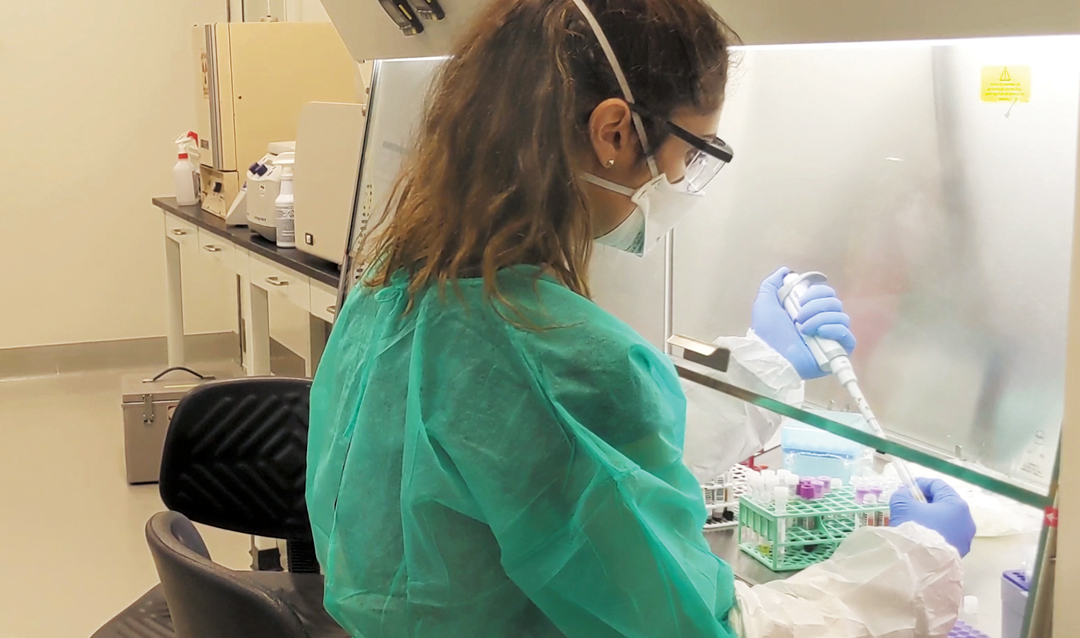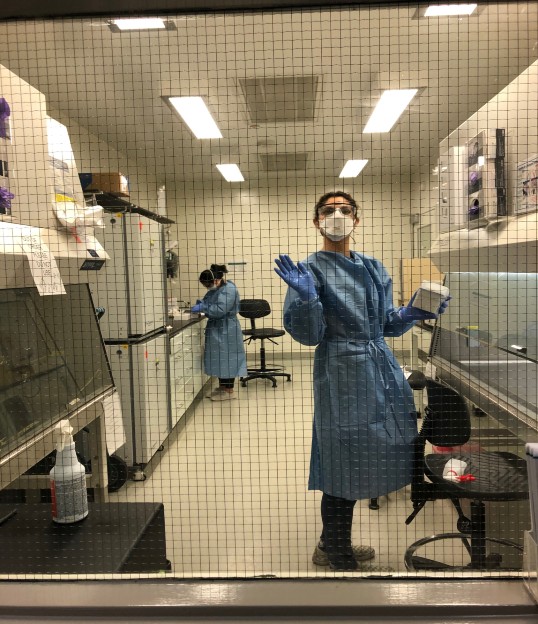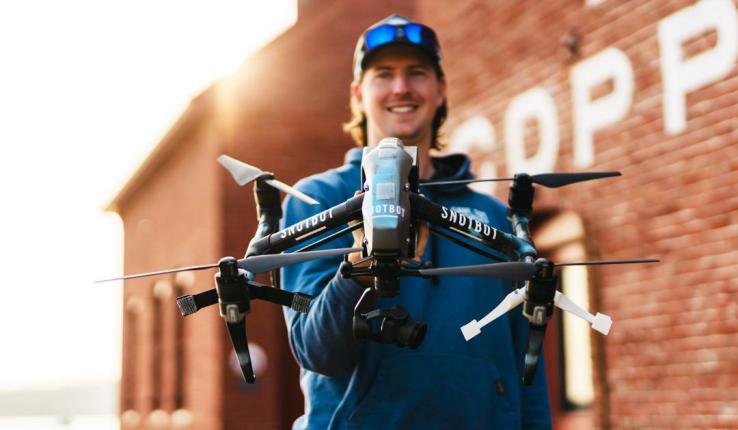Genemaras helped in the diagnostic lab whenever possible until she was called back to Garry’s lab to process positive COVID-19 blood samples and test nasal swabs for use in clinical trials. She worked 10-hour days, seven days a week, for a month, including Easter, with no additional pay other than her graduate school stipend.
“We take blood after it is no longer needed, process it, and send it out to different collaborators within Tulane University who are conducting different experiments with the antibodies – not necessarily for commercial use, but for research’s sake,” said Genemaras, who also extracted ribonucleic acid (RNA) from nasal swabs for polymerase chain reaction testing in the lab. The RNA samples are forwarded to an external company for sequencing to analyze mutations of the virus.
“Understanding what is going on with the antibody response is very important in learning about the whole infection and it making a comeback,” said Genemaras.
Following safety precautions and sanitizing are imperative while working with the COVID-19-positive samples. Genemaras wears a full gown, goggles, an N95 respirator mask, and two pairs of gloves. She performs her work under a biosafety hood that contains blood droplets and other airborne particles and is routinely sterilizing the lab with bleach and ethanol.
“Kaylynn has always been passionate about transforming discovery into meaningful solutions for complex problems, so seeing her at the forefront of the collective effort to tackle COVID-19 is as expected as it is inspiring,” said Susan Perry, professor of practice, Lehigh’s department of bioengineering. “For Kaylynn, working in the face of risk is secondary to her motivation and determination to contribute to innovations impacting global healthcare.”
During her senior year at Lehigh, Genemaras was advised by Perry and also worked with Xuanhong Cheng, associate professor, departments of materials science and engineering and bioengineering, in the Integrated Product Development (IPD) capstone course. The yearlong program brings together engineering, computer science, and business students to research and develop new products and create marketing plans for their inventions. Genemaras’ IPD team designed a novel HIV viral detection device that indicates whether medication is effectively decreasing the virus in the bloodstream. The team won first place in the Design by Biomedical Undergraduate Teams (DEBUT) Challenge. Genemaras is refining the device at Tulane in a doctoral degree program designed to merge innovations in science into entrepreneurial endeavors.







